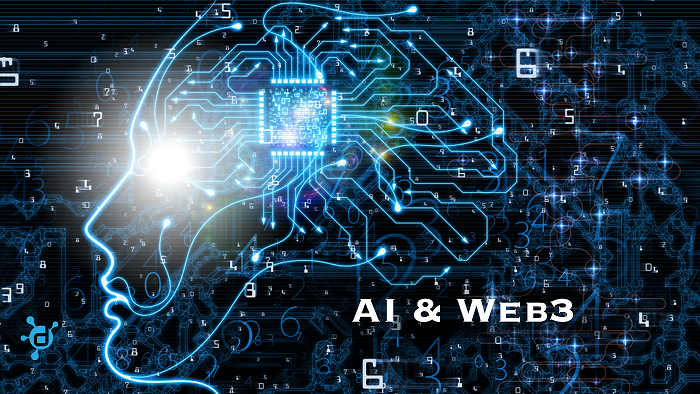In the coming years, specifically in 2023, businesses will witness a significant milestone in the adoption of blockchain technology. This transformative shift will be facilitated by the rise of blockchain-as-a-service (BaaS) solutions, which will revolutionize how companies leverage blockchain's potential. BaaS providers will offer a range of services that enable businesses to access and utilize blockchain technology without the complexities of building and maintaining their own infrastructure. This accessibility to blockchain technology through BaaS will bring forth a cost-effective approach, eliminating the need for substantial investments in developing blockchain systems from scratch.

The concept of BaaS aligns with the popular software-as-a-service (SaaS) model, where businesses can conveniently access software solutions without the burden of extensive setup and management. Similarly, BaaS will streamline blockchain implementation, allowing businesses to focus on their core competencies while harnessing the advantages of distributed ledger technology. By adopting BaaS, companies can optimize their operations, enhance efficiency, and gain a competitive advantage in their respective industries.
As the demand for BaaS solutions increases, an expanding array of companies will enter the market to offer these services. This growing competition will result in improved BaaS offerings, enhanced features, and increased accessibility to blockchain technology for businesses of all sizes. It presents a golden opportunity for forward-thinking businesses to embrace BaaS and leverage blockchain's benefits, positioning themselves as industry leaders and early adopters.
The advantages of adopting BaaS go beyond cost savings and streamlined operations. Blockchain technology offers inherent characteristics such as transparency, security, and trust that can revolutionize various aspects of business processes. By integrating blockchain, businesses can enhance supply chain management, streamline financial transactions, facilitate secure data sharing, and enable innovative decentralized applications. The potential applications of blockchain are vast and span across industries, including finance, healthcare, logistics, supply chain, and more.
In conclusion, the availability of blockchain-as-a-service solutions in 2023 marks a significant turning point for businesses seeking to leverage blockchain technology. With BaaS, companies can harness the power of blockchain without extensive investments and technical expertise, paving the way for improved operational efficiency, enhanced competitiveness, and transformative innovations. As the BaaS market expands and blockchain becomes more accessible, it is crucial for businesses to seize this opportunity and stay ahead of the curve in the rapidly evolving digital landscape.
Web3, also known as the decentralized web, is an evolving concept that aims to reshape the internet by integrating decentralized technologies such as blockchain, smart contracts, and peer-to-peer networks. While the full potential of Web3 is still being explored, it has the potential to empower AI innovations in several ways:
- Data Ownership and Privacy: Web3 promotes the idea of user data ownership and control. With Web3 technologies, individuals can have ownership and control over their personal data, deciding how and when it is shared. This shift in data ownership can enable more secure and private AI applications, as users have greater control over their data and can selectively share it with AI models and services.
- Enhanced Data Quality and Integrity: Web3 can enable data provenance and immutability through blockchain technology. This ensures that data used for AI training and inference remains tamper-proof and transparent. The immutability of blockchain can enhance data quality, integrity, and trustworthiness, which are crucial for developing reliable AI models.
- Decentralized AI Models: Web3 allows for the creation and deployment of decentralized AI models. Instead of relying on centralized servers, AI models can be distributed across a network of nodes. This decentralized approach improves scalability, fault-tolerance, and censorship resistance. It also enables collaboration and sharing of AI models in a peer-to-peer manner.
- Micropayments and Incentives: Web3 introduces native cryptocurrency and smart contract capabilities, enabling micropayments and incentivization mechanisms. AI models and services can be monetized more efficiently using cryptocurrencies, allowing for microtransactions between AI models, data providers, and consumers. This can create new economic models for AI innovations, incentivizing participation and fostering a decentralized marketplace for AI-related resources.
- Interoperability and Collaboration: Web3 promotes interoperability between different platforms, applications, and services through open standards and protocols. This interoperability allows AI models and services to seamlessly integrate with other Web3 components, such as decentralized storage, identity management systems, and decentralized marketplaces. It facilitates collaboration and exchange of AI innovations across different projects and ecosystems.
- Trust and Audibility: Web3 technologies provide transparency and auditability, which are essential for building trust in AI systems. Smart contracts and blockchain-based systems enable verifiable and auditable AI processes, making it possible to track the decisions and actions taken by AI models. This transparency enhances accountability and can help address ethical concerns related to bias, fairness, and explainability in AI.
By combining Web3 technologies with AI, we can envision a future where AI systems are more transparent, accountable, and respectful of user privacy. Web3's decentralized nature and focus on individual empowerment align well with the principles of responsible AI development, leading to new opportunities for innovation and collaboration in the AI space.
Category: AI